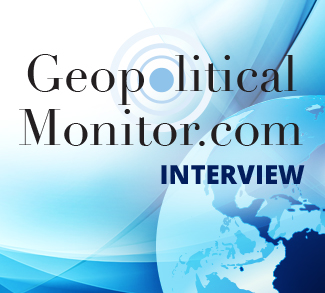According to media reports, Kenya has joined the growing ranks of African countries that plan to embark upon a nuclear energy building program in the near future. Reportedly justified as necessary to reduce the country’s carbon emissions, it is difficult to fathom why Kenya, a country that generates over 80% of its energy from renewable energy sources and which is widely believed not to have fully exploited these resources, is rushing headlong into this decision. This decision becomes even more curious considering that the country is not known to possess deposits of uranium let alone have an operational uranium mine. Compounding confusion about why Kenyan policymakers would even contemplate this course of action is the country’s relatively low level of access to the electricity grid of roughly 75% of the population and subsequently, the potentially significant reductions in levels of national carbon emissions that could be achieved by increasing citizens’ access to the grid and reducing or eliminating poorer citizens’ dependence on the use of dirty fuels such as wood or coal for electricity needs. Presumably, this would represent a far more cost-effective way, and certainly quicker way, for a government that is reputedly highly committed to reducing its already relatively small (by global standards) per-capita carbon emissions to do so.
The lack of obvious and urgent environmental, financial, or technical reasons to embark upon a nuclear program leads this casual observer to suspect that those who wonder why the Kenyan government seems hell-bent on foregoing the opportunity to capitalize on the clear comparative advantages it enjoys in the renewable energy market to flirt with the idea of nuclear energy might have to look elsewhere for a satisfactory explanation than the reasons that have been put forward by Kenyan policymakers. Speculatively, a good place to start to search for answers about the underlying reasons for the Kenyan government’s decision to go nuclear is the domestic and global political realm. Arguably, highlighting some of the political factors that have been identified as drivers of countries’ nuclear policymaking decisions when the logic of doing so seems fuzzy may offer insight into why the Kenyan government has elected to pursue this policy when its grounds for doing so appear weak.
On the domestic front, it is hard for politicians to resist the allure of the national prestige which a nuclear power program is perceived to lend one’s country. Experience suggests that a nuclear power program represents the sort of techno-fantastic vanity project that policymakers, especially those from countries that aspire a greater global status, believe would enhance the nation’s sense of prestige and evoke feelings of national pride. The folly of succumbing to this allure is illustrated by the plethora of development projects littered across Africa, ranging from Zaire’s space program to South Africa’s Pebble Bed Modular Reactor Project to Nigeria’s Abuja National Stadium, that were once touted as national flagship projects but now stand idle as white elephants.
A second factor relates to the cover which a nuclear program provides governments to clamp down on dissent and bypass civilian oversight mechanisms, all in the name of the ‘national interest’ of course. This prospect seems particularly appealing in newly-emerging democracies where state institutions are typically weak, civil society is cowed, and democratic norms regarding transparency and public accountability are struggling to take root. The Kenyan government seems well aware of the power to act autocratically which a nuclear program grants authorities, as can be gathered by the heavy-handed tactics it used last month to crack down on anti-nuclear activists who were conducting nuclear education campaigns in Kilifi, one of two locations proposed for a nuclear power station.
A third political consideration which makes a nuclear program so beloved of politicians and bureaucrats domestically is the opportunities it affords to disburse patronage from the public purse and to direct public spending to certain favored groups or politically-connected cliques. Furthermore, unlike other large public infrastructure projects that are accorded highest national priority status and are popular with politicians for similar reasons, nuclear build programs are very rarely abandoned by successive administrations, despite them invariably coming in over time and over budget. The elastic public spending commitment which a nuclear program binds the government to enables the government and ruling elite to purchase the loyalty of key constituents who might otherwise represent a potential threat to their rule. In so doing, they are able to reinforce their grip on power.
There also exist several foreign policy reasons why nuclear build programs are popular with bureaucrats. Based on the Cold War experience of African and other developing nations, it is asserted that these considerations will become more urgent for developing country policymakers during this period when global geopolitical tensions are rising and global axes of power are shifting.
Of these, the possibility that the large sums involved, sensitivity of the technology exchanged, and long timelines associated therewith could give the country some diplomatic leverage in its attempts to ingratiate itself with rival power blocs and thereby secure diplomatic and economic advantages, such as preferential trade concessions or access to finance, is likely to be uppermost in policymakers’ minds. Furthermore, proponents of this strategy may estimate that the scope to do so is magnified since Russia has made energy diplomacy a cornerstone of its foreign policy agenda in Africa, BRICS ally China is in the midst of a nuclear building spree of its own, and the Biden administration in the United States has recently begun to reinvest heavily in its (civilian) nuclear energy sector through the Civilian Nuclear Credit Program. Incidentally, these dynamics appear to have informed Burkina Faso’s new military regime’s recent announcement that it plans to partner with Russia on the establishment of a civilian nuclear power program.
Turning to the near abroad, Kenyan strategists might estimate that a nuclear program would afford it a greater degree of influence over its neighbors in a volatile region of the continent. According to some energy market analysts, building a nuclear plant would cause a surplus of electricity supply in Kenya’s domestic energy market. Should these predictions be realized, or so Kenyan strategists might surmise, it would be possible for the country to sell its surplus electricity to its neighbors in this energy poor region of the world. On the other hand, Kenya’s neighbors might calculate that they could potentially benefit from Kenya selling its surplus electricity abroad by paying lower prices for electricity from the Eastern Africa Power Pool to which they and Kenya belong than they otherwise would. As a result, Kenya would effectively subsidize their economic development thus putting it in a stronger position in its relations with its neighbors. The cost of doing so is that Kenyans would wind up paying more for electricity by over-investing in electricity generation capacity and contending with the distortions which a glut of electricity could introduce into pricing in the energy market and the economy at large.
Nuclear vendor countries in the developed world are also likely to approve of Kenya’s desire to embark upon a nuclear program. Over and above the obvious financial incentives and the possibility of forging long-term scientific, technological, and political ties, having Kenya invest in a mid-twentieth century technology would necessarily cause this country to divert time and scarce financial, human and technical resources away from making investments in alternate emerging energy sources; areas in which Kenya ought to have a natural advantage by virtue of the lower sunk costs it is likely to incur because fewer assets would be left stranded in the just transition to less carbon-intensive economies that is underway globally. This diversion and subsequent delay in making investments would indirectly benefit developed countries as it would afford them time and space to build up their own capacity in these sectors and erode the head start which Kenya ought to enjoy in these markets.
Tentatively, these are the sorts of political considerations which might better explain Kenya’s scramble for nuclear power than the unsatisfactory explanations that have been put forward by Kenyan politicians. Although promising avenues for further investigation, it is impossible to gauge the extent to which they feature in Kenyan nuclear policymakers’ decision-making calculus, if at all. Where the case for nuclear power is fuzzy, however, it is fairly safe to presume that factors other than the economic or technical considerations that have been sold to citizens will feature more prominently in politicians’ calculations. In other words, it can be confidently stated that the case for nuclear power is a lot more ideological than the average pro-nuclear politician or ordinary nuclear supporter would care to acknowledge.
The views expressed in this article belong to the authors alone and do not necessarily reflect those of Geopoliticalmonitor.com.




